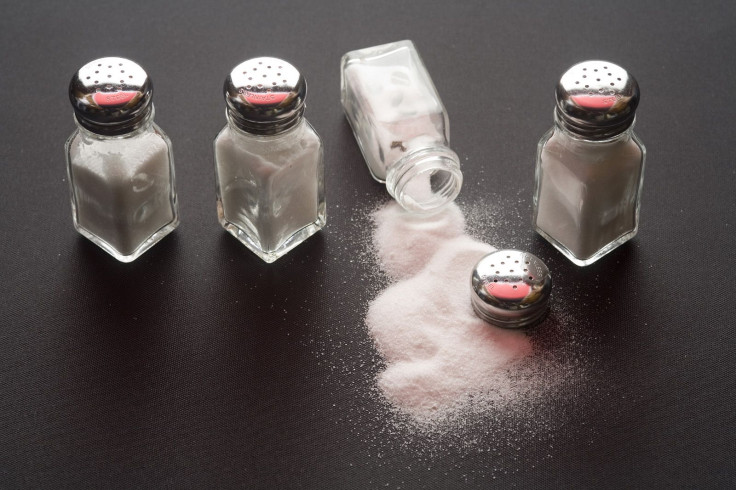High Salt Diet Raises Stomach Cancer Risk with Ulcer-Causing Bacteria

A high-salt diet is a major risk factor for stomach cancer, as is infection with the ulcer-causing bacteria Heliobacter pylori. A new study shows that the two factors together form a double whammy, dramatically increasing one's chances of developing the disease.
Stomach cancer, or gastric cancer, is the second most common cause of cancer-related deaths in the world, according to the National Cancer Institute, with about 738,000 killed as recently as 2008. While some risk factors, like age and genetic factors, cannot be altered, others are changeable lifestyle factors like smoking, drinking, alcohol, and poor diet.
The new research, published in the journal Infection and Immunity, adds yet another reason to limit the amount of salt in your diet.
At least half of all people have the H. pylori bacteria growing in the mucus lining of their stomachs, but most develop no symptoms. In some people, however, the bacteria wear down the stomach lining to cause painful peptic ulcers. H. pylori also produce a bacterial oncoprotein called cagA that is necessary for gastric cancer growth. People with the bacteria are six times more likely to develop gastric cancer than those without, according to research cited by the National Cancer Institute.
A team led by Timothy L. Cover of Vanderbilt University investigated the interaction between a salty diet and H. pylori infection in Mongolian gerbils, since they are easy to study and have similar digestive systems to humans.
All the gerbils in the study sample were infected with either normal H. pylori (cagA+) or a mutant strain that did not produce the cagA protein (cagA-). Half of each group was fed a regular diet for four months, and the other half ate a high salt diet.
At the end of that period, the researchers examined the gerbils' stomachs to find that in the normal H. pylori group, every single one of the gerbils on the high salt diet had gastric cancer, while only six out of 10 on the regular diet developed it.
In the mutant H. pylori group, however, none of the gerbils developed gastric cancer, indicating that the presence of cagA was necessary for carcinogenesis.
Gerbils with normal H. pylori infection that ate high salt diets also had much higher levels of stomach inflammation, which is a cancer risk factor and a known result of excess salt intake.
Clearly, high salt intake and cagA proteins produced by H. pylori bacteria were interacting to increase stomach cancer risk.
H. pylori infections are more common among children who grow up in crowded conditions and have a lower socioeconomic status, which means the bacteria is much more prevalent among people in developing parts of the world. Not incidentally, the research suggests, stomach cancer is also a growing problem in developing nations.
The researchers write that "in several parts of the world that have high rates of gastric cancer, there is a high prevalence of cagA+ strains and a large proportion of the population consumes a high-salt diet."
The findings suggest that encouraging people to eat less salt, especially among populations where H. pylori is common, could help decrease stomach cancer rates internationally.



























